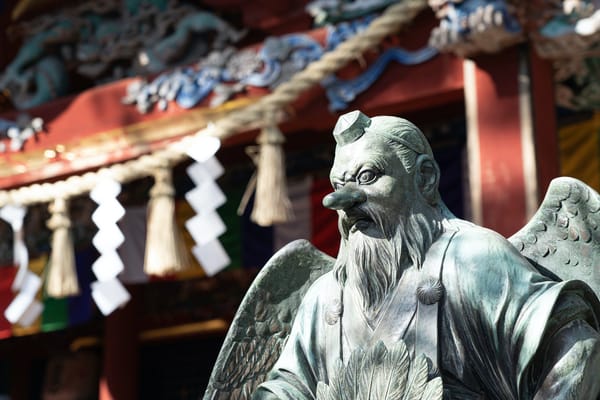How to Compliment Your Friends in Japanese
A thoughtful guide to praising Japanese friends—style, spirit, and small wins—without the awkward guesswork.

Compliments can feel tricky across cultures. In Japan, where modesty and harmony often come before bold self-expression, praise tends to be more subtle — but that doesn’t mean it’s not appreciated. Whether you’re praising a friend for their style, their kindness, or just letting them know you notice their strengths, the right compliment can deepen connection.
This guide walks you through how to compliment your Japanese friends — women and men — in ways that feel natural, thoughtful, and real. We’ve included common compliment types with casual Japanese examples (plus romaji) to help you express yourself with confidence.
1. Complimenting Someone’s Style
In Japan, fashion and presentation are seen as a reflection of self-awareness and consideration. Complimenting someone’s outfit or vibe — in a way that feels personal — goes a long way.
“Your sense of style is always so on point.”
いつもセンスいいよね。Itsumo sensu ii yo ne.
“That color looks amazing on you!”
その色、めっちゃ似合ってる! Sono iro, meccha niatteru!
2. Complimenting Personality or Vibe
Japanese friends may not expect direct praise, but noticing their emotional intelligence, thoughtfulness, or calm presence can feel really affirming.
“I really admire how you always think of everyone. It makes hanging out so relaxing.”
いつもみんなのこと考えてて、ほんとに居心地いい。Itsumo minna no koto kangaetete, hontō ni igokochi ii.
“You handled that situation so well — really cool.”
あの時の対応、めっちゃかっこよかったよ。Ano toki no taiō, meccha kakkoyokatta yo.
“You’re so grounded. I feel calm just being around you.”
○○って、落ち着いてて一緒にいると安心する。○○ tte, ochitsuitete issho ni iru to anshin suru.
3. Complimenting Strengths and Skills
Praising someone’s talents or abilities — from artistic skills to cooking — feels best when it’s specific. Vagueness like “You’re amazing” isn’t as impactful.
“That bento you made? Seriously impressive.”
あの弁当、ガチですごかったよ。Ano bentō, gachi de sugokatta yo.
“You’re really good at noticing the little things.”
細かいところに気づくの、すごいよね。Komakai tokoro ni kizuku no, sugoi yo ne.
“You’re such a good listener.”
○○って、ほんとに聞き上手だよね。○○ tte, hontō ni kikijōzu da yo ne.
4. Compliments That Celebrate Humor and Fun
Complimenting someone’s sense of humor or playful side is underrated in Japan, but deeply appreciated.
“You always know how to make people laugh.”
いつも笑わせてくれるよね。Itsumo warawasete kureru yo ne.
“Your reactions are the best.”
リアクション最高!Reakushon saikō!
“Hanging out with you is never boring.”
○○といると、絶対に飽きない!○○ to iru to, zettai ni akinai!
5. Complimenting Inner Character
Compliments that touch on someone’s values or integrity — without being too heavy — can strengthen friendships in subtle but powerful ways.
“You’re really kind. Like, not in a fake way — you actually care.”
○○って、ほんとに優しいよね。なんか、ちゃんと気持ちがこもってる感じ。○○ tte, hontō ni yasashii yo ne. Nanka, chanto kimochi ga komotteru kanji.
“You’re always so thoughtful. It’s inspiring.”
いつも気がきくし、見習いたいくらい。Itsumo ki ga kiku shi, minaraitai kurai.
“Even when things are tough, you’re steady. I really respect that.”
大変な時でもブレないの、ほんとに尊敬する。Taihen na toki demo burenai no, hontō ni sonkei suru.
What Makes a Compliment Feel Good in Japan?
- Sincerity over drama. Avoid exaggerated praise (“You’re the best in the world!”). Understated and genuine hits better.
- Observation > evaluation. Focus on what you noticed rather than ranking someone. “I liked the way you ___” feels more comfortable than “You’re amazing.”
- Subtle is safe. If you’re unsure, tone down your delivery and observe how it lands.
One Last Compliment:
“You’re someone I feel lucky to know.”
○○と出会えてよかったなって思う。○○ to deaete yokatta na tte omou.
Because honestly — the best compliments are the ones that remind someone they’re seen.
For more stories like this and insider tips on life and culture across Japan, follow us on Instagram @coulecte and YouTube @coulectejapan. Don’t forget to sign up for our newsletter to get curated content delivered straight to your inbox.





